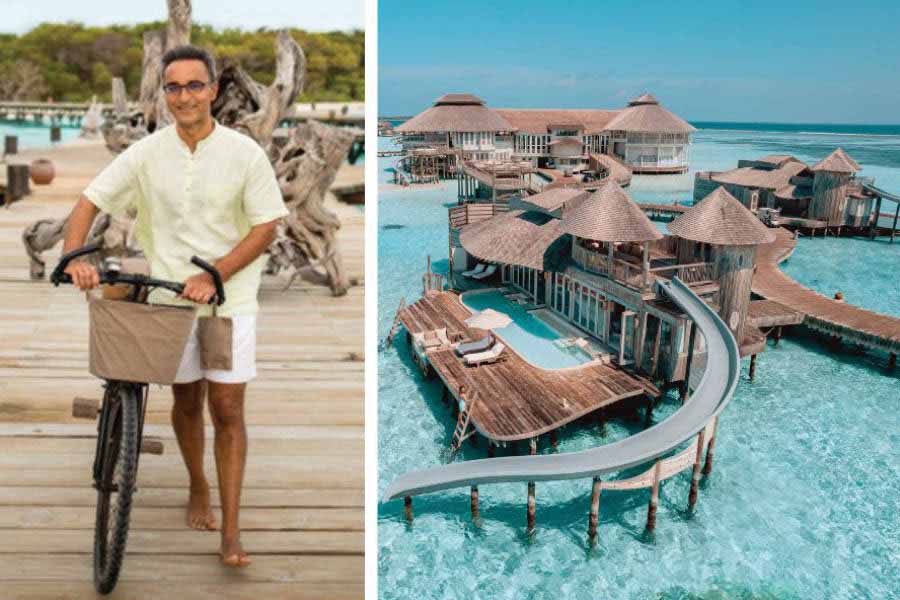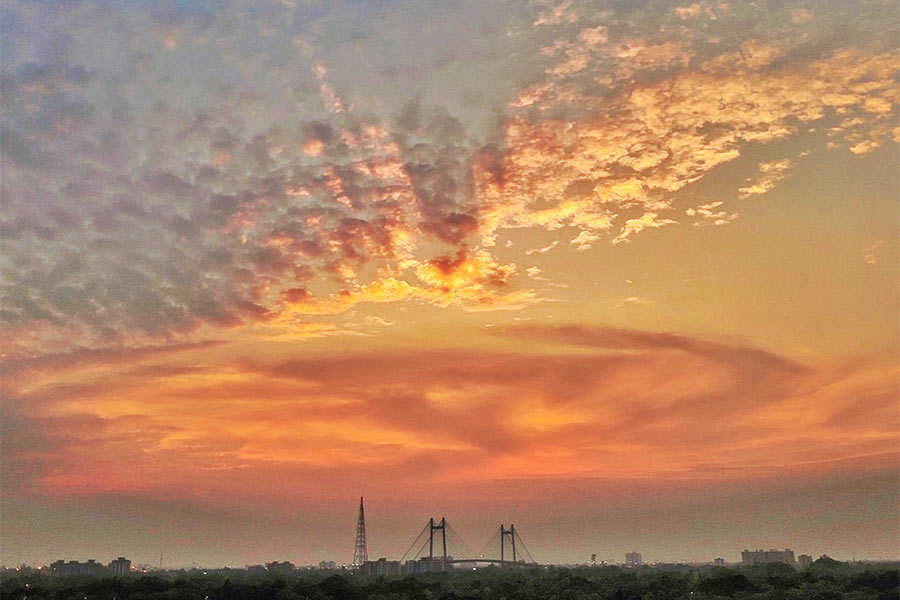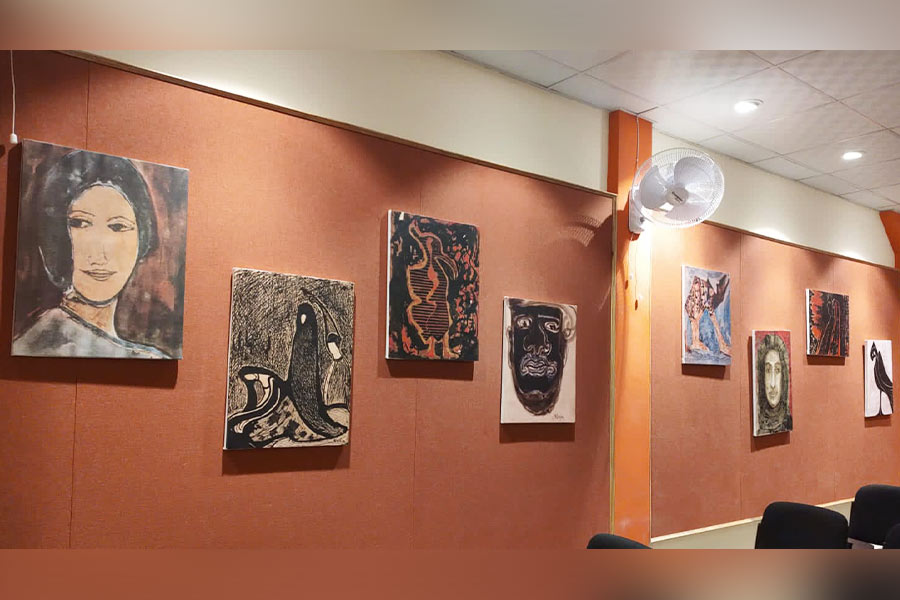We are so used to the islands of Maldives only popping up when celebs visit or when pictures of stunning beaches are propagated on Instagram. So the recent news of the diplomatic tightrope Maldives is walking, their debt distress, verbal attacks on India, China coming into the picture breaks the pristine image we all have of this archipelago of many coral islands only 750 km off the southwest coast of India.
I spoke with Sonu Shivdasani, the CEO and founder of the luxury resort chain Soneva, which has two world-class resorts in the Maldives for over 25 years, about his views on the latest developments in ‘paradise’.
Karen Anand: Sonu, do you think this recent controversy will have an impact on tourism in the Maldives and your properties in particular?
Sonu Shivdasani: Like many people across the Maldives and India, I was appalled to read the disparaging remarks made recently on social media by three junior Maldivian ministers towards Indian Prime Minister Narendra Modi. The comments were rude, offensive and xenophobic. As a person of Indian origin and owner of Soneva resorts, a pioneer in Maldivian tourism, the uproar the comments caused — leading to calls in India to boycott Maldives — has been deeply concerning. Thankfully, Maldives President Muizzu and his government suspended the deputy ministers and clarified that their remarks do not represent official policy, which was a small ray of sunshine in a stormy week.
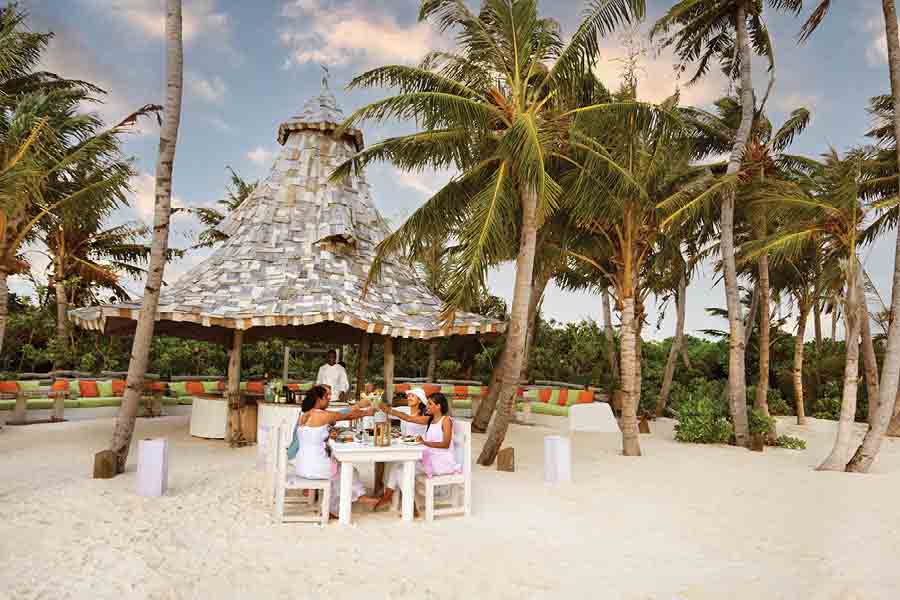
‘According to the Ministry of Tourism, 2,09,000 Indians visited the Maldives in 2023’
Courtesy SonevaTravel agents in the Maldives have highlighted a 40 per cent reduction in bookings. At Soneva, we lost a big booking when the controversy started. It is still early days to determine exactly what will happen. I suspect that there will be no cancellations of bookings, but new bookings will certainly be slower than they would have been without this incident. It’s my hope that this storm will pass and all will go back to normal in a month or two.
There have been various statistics doing the rounds. How many Indians actually come to the Maldives and in particular to your resorts ?
We receive about 2,00,000 Indian tourists to the Maldives every year. India is the number 5 market for Soneva Jani, and just at the bottom of the top 10 for Soneva Fushi.
According to the Ministry of Tourism, 2,09,000 Indians visited the Maldives in 2023. If we assume that each tourist spends an average of four nights and spends somewhere around USD 700 to USD 750 a day between accommodation, food, extras, etc., this will constitute around USD 600 million per year to the Maldivian economy. The 10 per cent service charge that employees working at hotels would receive from this travel is USD 60 million. Indian tourists also form the backbone of guesthouse tourism in Maldives, helping to support small businesses and inject wealth directly into local island communities. If India does boycott the Maldives, it will have a significant impact on many Maldivians. Certainly, the announcement of the Indian Government in the past few days that it is reducing its overseas assistance to the Maldives by 22 per cent should be cause for concern in Male.
This was clearly a big faux pas by the three Maldivian ministers, diplomatically and otherwise. However, it has brought up the whole story of tourism in India. Would you ever consider doing a Soneva in India ?
Funny enough, this incident has drawn my attention to Lakshadweep and the Andaman Islands and our development team are currently making enquiries to find out more.
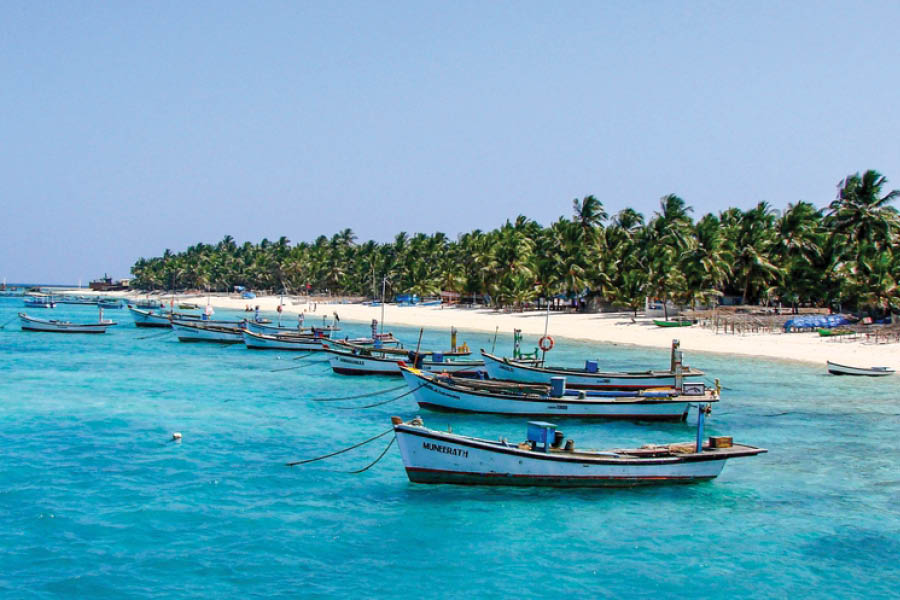
The recent incident with India and Maldives has drawn Shivdasani’s attention to Lakshadweep (in picture) and the Andaman Islands
ShutterstockWe have such beauty in India but we are often guilty of irresponsible tourism. What have you done in the Maldives to combat this?
The Maldives has had visionary policies in place, including restrictions on build- up, so the square meterage of the development can only be 30 per cent of the square meterage of the land that it’s on. There is a setback of 30 metres from the beach, whereas in India the setback is too far. Every hotel is required to have their own sewage treatment facilities, incinerators, and general waste management. There is a large focus on and incentives to support solar energy — for example, all equipment to do with renewable energy is duty exempt.
Do you think this controversy is rooted in politics, prejudice or both?
Unfortunately, Maldives is based on partisan politics. This is sad and short-sighted.
For any small nation, it is always going to require a deft hand to balance its relations with two regional superpowers. Maldives still receives large numbers of Chinese tourists. But rather than embracing one regional superpower and rejecting the other, surely a sensible path for Maldives would be to develop good relations with both, and ensure it does not needlessly antagonise either.
How do you keep tourism affordable, accessible and not run into ‘over tourism’? What is responsible tourism for you ?
Explaining responsible tourism would require a very long answer, but essentially one should do whatever one can to reduce their impact on the environment. We have made a film, ‘25 Years of Sustainability’ that explains some of the work we have been doing.
More from the CEO of Soneva Resorts
‘We are dependent on India for more than just its tourism’
Anti-Indian sentiment in Maldives is already impacting people’s daily lives. As a Maldives resident, I personally felt the impact last month. I was waiting to carry out a medical procedure that had to be cancelled because the hospital in Maldives could not get the required product as their Indian supplier’s export licence had been revoked. I suspect that my case is not isolated, and others living in the Maldives — both locals and foreigners — are suffering in similar ways. Eighty-five per cent of Maldivians who travel to India go there for medical purposes. As a country, we are dependent on India for more than just its tourism.
‘Tourism is Maldives’ golden goose’
Tourism is critical to the Maldivian economy, with up to 90 per cent of economic activity linked to the industry in some way. According to the World Bank, in 1980, the Maldives was amongst the world’s 20 poorest countries. Today, after 50 years of tourism, the Maldives is a middle-income country with the highest per capita GDP in south Asia, with high life expectancy and literacy rates. Tourism has made the Maldives prosperous; it is the country’s golden goose.
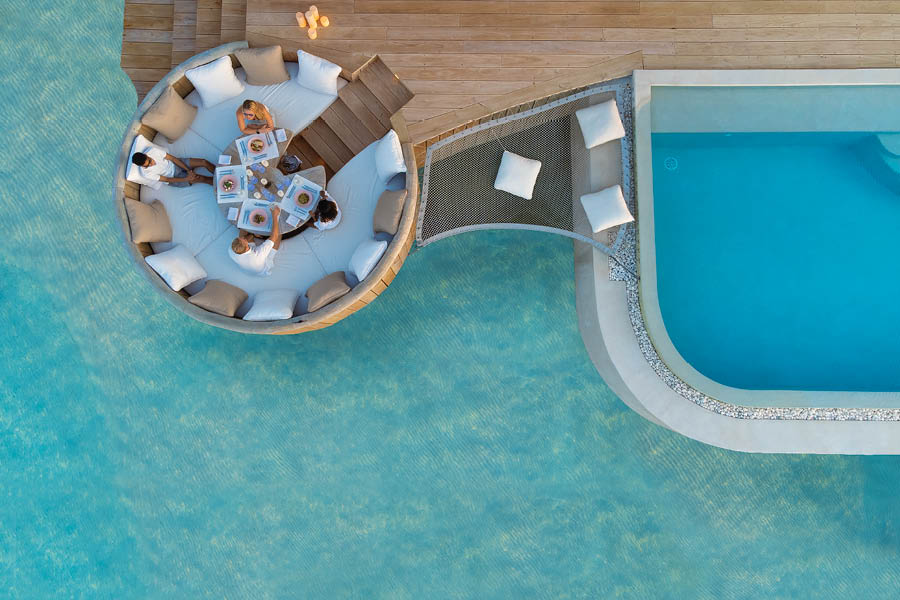
‘Tourism is critical to the Maldivian economy, with up to 90 per cent of economic activity linked to the industry in some way’
Courtesy SonevaIn recent years, Indian tourism has been very important to the Maldives. During the pandemic, when many countries, including China, closed their borders and sent us no tourists, Maldives and India created a ‘travel bubble’ that saw a huge increase in Indian visitors in 2020 and 2021 that shored up Maldivian tourism. Pre-pandemic, there were no direct flights between Maldives and Mumbai or Delhi. Today, there are some five daily flights. Even though Chinese tourism has recommenced, India still remains the largest tourism market.
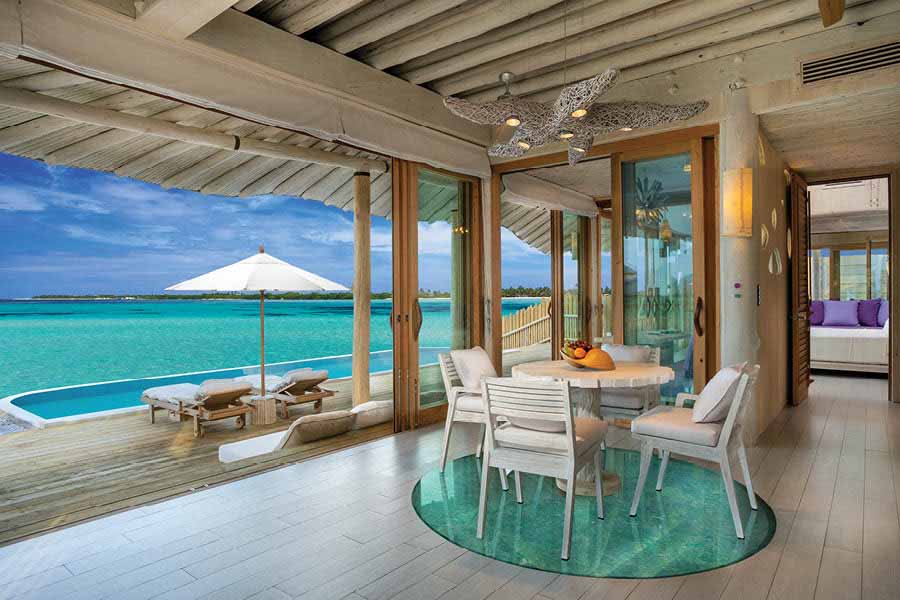
Entrepreneurs in the hospitality industry in Maldives are supported by Maldives’ ambitious environmentally inclined policies and goals
Courtesy Soneva‘Enlightened policymaking has endeared travel markets to Maldives’
Over the last 30-odd years, entrepreneurs investing in tourism, such as my wife Eva and I, and others who were also honoured at the 50-year Anniversary for Tourism, have not received much marketing support or funding from the Maldives government. However, we have been supported by enlightened policymaking that has endeared the international community and our travel markets to the Maldives. Visionary policies, made by different administrations over the past decades, such as the Maldives’ ambitious climate change goals, strong protections for marine life, and banning single-use plastics, have cultivated considerable international goodwill and have enhanced the Maldives’ tourism brand. In an era where politics has become partisan and toxic across the world, it would be visionary for the Maldivian government to practise and promote bipartisan policies.
‘It will benefit India to collaborate with Maldives’
India is a mighty economy. The fastest growing large economy on the planet today. By 2030, India will be the third largest economy in the world. Yet, it will benefit India considerably to collaborate with the Maldives, as Prime Minister Modi demonstrated with the last government, by extending considerable support. India and PM Modi, as per his recent tweets, would like to develop remote island tourism in both the Lakshadweep and Andaman islands. The Maldives has 50 years’ experience in remote island tourism development. India would certainly benefit from a collaboration with the Maldives to understand their successes and mistakes.
I am reminded of the words of the great Chinese Philosopher, Lao Tzu — ‘Good fortune has its roots in disaster.’ My hope is that this low in Maldives-India relations will eventually lead to stronger ties, greater collaboration and good fortune.


